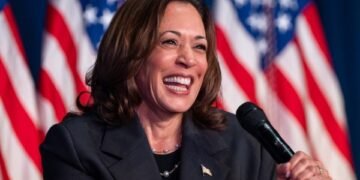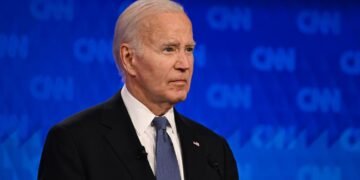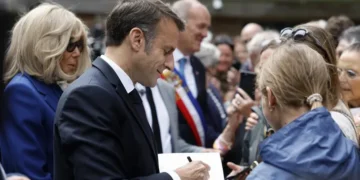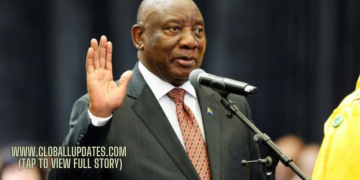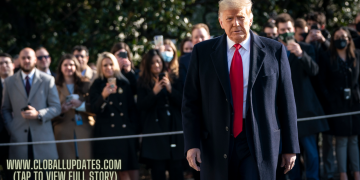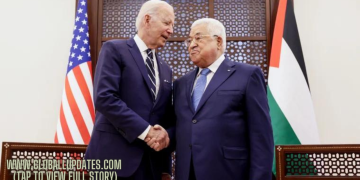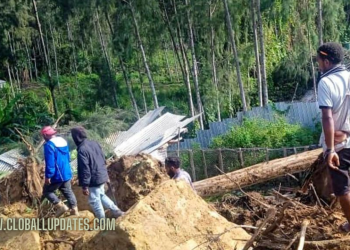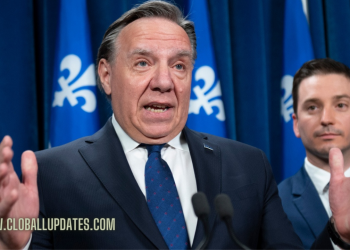For months, Brazilian President Luiz Inácio Lula da Silva has attempted to position himself as a potential mediator in the Ukraine conflict while calling for peace from thousands of miles away.
Lula, as he is known, seems to embody his government’s statement that “Brazil is back” — that is, back to claim a role in global politics — without providing many details on the plan. In the process of forming a coalition of countries willing to intervene and lead peace efforts in Ukraine, he finds himself walking a fine line with the world’s most powerful nations.
Lula’s proposal is to establish “a G20 for peace” – a group of countries that are powerful enough to be respected at the negotiating table, but are still viewed by some as neutral in the conflict between Russia and Ukraine. Indonesia, India, and China would play crucial roles in his vision, but Latin American nations are invited to join the apparent initiative as well.
Lula told Time magazine upon launching his political comeback in 2022 that both Russia and Ukraine were culpable for the conflict. Lula condemned Russia’s decision to invade its neighbour, but controversially asserted that the Ukrainian president could have done more to prevent the conflict. Once in office, he insisted that Brazil would remain neutral.
Lula felt compelled to act when German Chancellor Olaf Scholtz recently urged Brazil to contribute armaments to Ukraine’s defence, according to Guilherme Casares, political scientist and professor at Fundaço Getlio Vargas’ Public Administration School.
Casares stated, “He was sitting on the fence, very comfortable where he was, but now he had to get off the fence.”
The analyst indicated that Lula could not conceive of sending weapons, as this would go far beyond Brazil’s traditional foreign policy.
I believe that no Brazilian government, not even Bolsonaro’s, would ship weapons to Ukraine. Casares stated, “Brazil does not participate in wars with which it has nothing to do unless it is a global conflict.”
Lula had promised to bring Brazil “back” to the international stage, so he couldn’t do nothing either.
Casares states, “He could have simply said ‘no,’ but he did not.” “Instead, he stated, ‘Okay, I’m not sending weapons to Ukraine, but let’s try to broker peace; let’s use Brazil’s reputation and my own talents as a mediator to facilitate a peace summit; let’s try to figure it out. If I must choose a position, I will choose the side of dialogue.
A hard offer
The United States, France, and Germany have heard Lula’s proposal to establish a peacekeeping team. Lula has also broached the subject with Chinese leader Xi Jinping, but he left Beijing without a formal commitment earlier this month.Lula has struggled to gain widespread support for his proposal. As a potential resolution, he has proposed that Ukraine cede Crimea, which Russia annexed in 2014 – a concession that Kyiv has rejected and that the White House has described as “simply misguided.”
Lula’s haphazard approach to consensus-building has also been problematic. The United States, a close ally of Kiev, had primarily remained silent about Lula’s remarks on Ukraine until recently. But while still in Beijing last week, Lula took direct aim at the United States, which along with the European Union has been a significant provider of defensive arms and assistance to Ukraine.
Lula told reporters that the United States should stop “encouraging” war and instead “start talking about peace”; this remark garnered praise from Russian Foreign Minister Sergey Lavrov and anger from the White House.
Two days later, US National Security spokesman John Kirby accused Brazil of “parroting Russian and Chinese propaganda.”
Kirby stated that it is “extremely problematic how Brazil has substantively and rhetorically approached this issue by implying that the United States and Europe are not interested in peace and share responsibility for the war.” In this instance, Brazil uncritically repeated Russian and Chinese propaganda without examining the facts.
Lula later appeared to soften his tone; the very next day, during a speech commemorating the visit of the president of Romania, the Brazilian leader emphasised that his government “condemns the violation of Ukraine’s territorial integrity” and “supports a negotiated political solution.”
CNN experts say that failing to do so would risk isolating Brazil from its Western allies and trading partners.
Ignacio Ybáez, the European Union’s ambassador to Brazil, told CNN Brasil on Tuesday, “If we are in an environment where we are condemning Russia’s aggression and trying to find solutions for peace together, then of course we will appreciate Brazil’s efforts.”
“Where we begin to have trouble understanding the Brazilian government’s ideas is when they place the attacker and the attacked on an equal footing,” he said.
Casares asserts that Lula must immediately refine his message and demonstrate his willingness to engage with Ukraine if he hopes to maintain his credibility in Europe and the United States and ultimately claim credit for peacemaking. “Lula hadn’t really considered what he was going to say in an effort to build this unaligned position,” he explained.
“If Lula continues to affirm that Russia and Ukraine are equally responsible for the war, I believe that his popularity will eventually wane, so it’s important for him to take a step back, maybe reconsider some of the things he has said about the war, and perhaps change the way he expresses it, even if only slightly. I believe that is sufficient for people to comprehend Brazil’s true position.”
He suggests that Lula could invite a Ukrainian delegation to Brasilia, similar to Lavrov’s last week’s visit.
Casares says, “Let’s demonstrate that we are truly willing and committed to communicating with both sides.”
As of Friday, Lula had asked Celso Amorim, a former foreign minister and adviser on foreign policy, to travel to Ukraine, although no date has been set. Amorim conferred with Russian President Vladimir Putin in Moscow earlier this month.
However, Lula’s position will remain precarious as he endeavours to safeguard Brazil’s economic interests while thrusting himself into a tense geopolitical arena.
China is Brazil’s largest trading partner and the country’s largest consumer of soy and beef. Brazilian producers rely on Russian fertilisers for both of these agricultural products. If he fails, the economic and diplomatic agendas could collapse.
Andre Pagliarini, assistant professor of history at Hampden-Sydney College and non-resident fellow at the Washington Brazil Office and Quincy Institute, asserts that China is ultimately one of the reasons why a peace agreement brokered by Lula is unlikely to materialise.
“Like Brazil, China has a vested interest in persuading Russia to end the conflict. However, unlike Brazil, it has the ability to compel Putin’s hand, and unlike Brazil, it has no interest in sharing peace credit,” Pagliarini said.
As Lula continues his “Brazil is back” world tour, he confronts a number of challenges at home, including the dismissal of his chief of security over a leaked video of the January 8 riots in Brasilia and the growing political threat posed by Brazil’s radical right. The economy of his nation is contracting and inflation is rising; indigenous communities in the Amazon are in crisis; and the nation is plagued by food insecurity.
A strategy of maintaining Brazil’s tradition of nonalignment and charting a path independent from the major global powers could be advantageous for both him and the Brazilian people. According to the government, the sanctions imposed on Russia by the United States, Japan, and the European Union have severely disrupted global commerce and agriculture, with disproportionate effects on developing nations whose economies are still recuperating from the pandemic, including Brazil.
Brazil has a chance of appearing credible as a peace broker while also promoting its own economic development, but the stakes are high.
“I believe it will be deemed a success if it can produce real material gains for Brazilians,” says Pagliarini. If Brazilians’ living conditions do not improve, however, Lula’s foreign policy will likely contribute to the narrative that he is too elderly and regressive to lead Brazil into the next decade.


